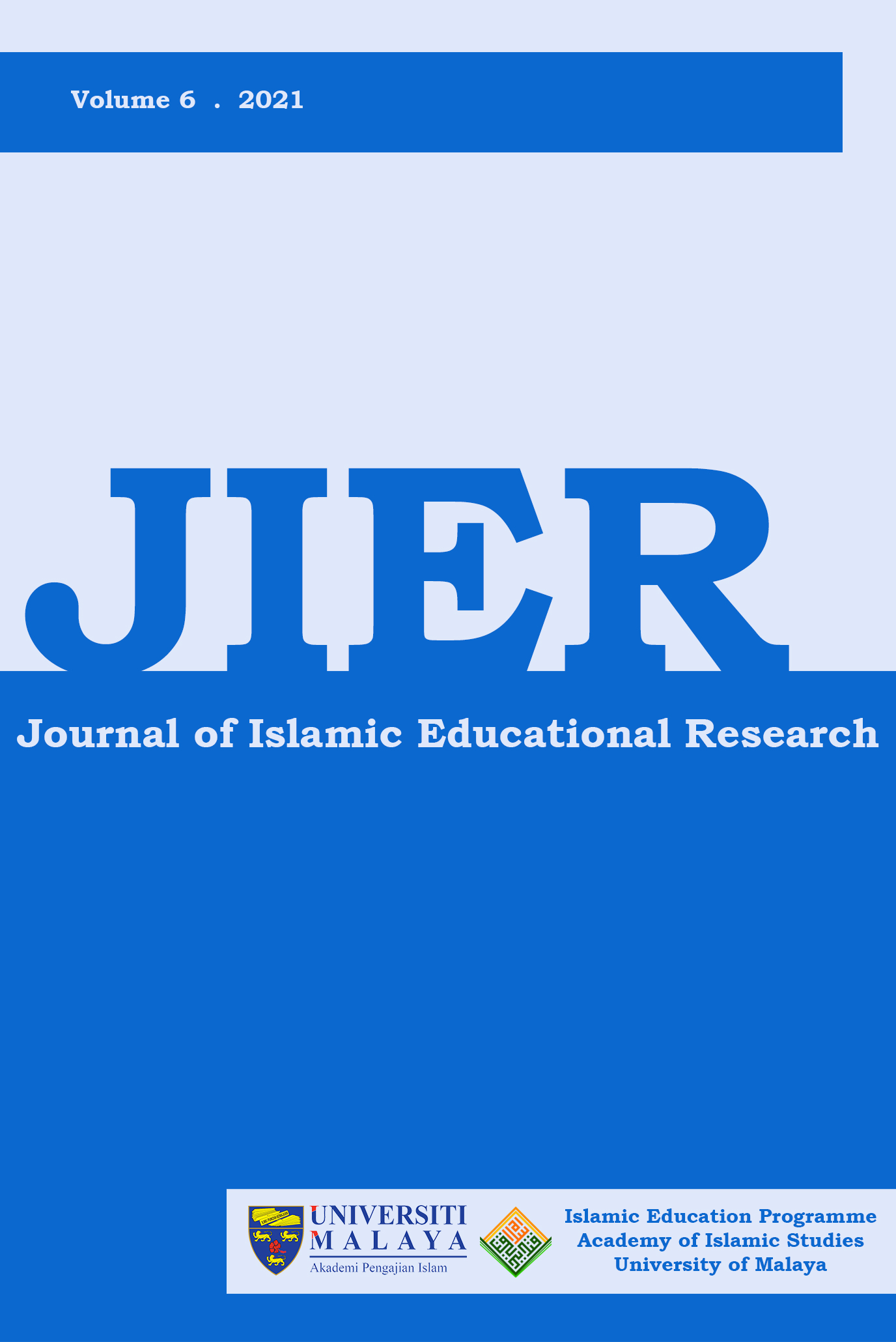CADANGAN PENYELESAIAN PAKAR PENDIDIKAN BERKAITAN PENGAJARAN GURU PENDIDIKAN ISLAM DALAM MENGINTEGRASIKAN KEMAHIRAN BERFIKIR ARAS TINGGI (KBAT) DI SEKOLAH MENENGAH
RECOMMENDATIONS OF EDUCATIONAL EXPERTS ON THE TEACHING OF ISLAMIC EDUCATION TEACHERS IN INTEGRATING HIGHER ORDER THINKING SKILLS (HoTS) IN SECONDARY SCHOOLS
DOI:
https://doi.org/10.22452/jier.vol6no2021.2Keywords:
Educational Expert Recommendations, Teacher Teaching Skills, HoTS Integration, Islamic EducationAbstract
This study aims to deeply elaborate with a focus on planning and implementation which is often a challenge on Islamic Education teachers teaching in integrating Higher Order Thinking Skills (HoTS) by four education experts. All participants were selected based on purposive sampling. Referring to the suitability of the study, the exploration was conducted by implementing a qualitative paradigm using a case study design based on semi-structured interview method and document analysis implemented. The findings of the study show that the proposed problem solving by education experts in relation to problems that occurred in the teaching of Islamic Education teachers in integrating HoTS is the process of information delivery, the competence of education officers and dismantling the curriculum. Based on the overall findings of the study shows, Islamic Education teachers need to be skilled in implementing pedagogy accurately based on the current curriculum guided by comprehensive information aimed at supporting the formation of students holistically.
Downloads
Downloads
Published
How to Cite
Issue
Section
License
The published manuscript shall be a copyright of the Islamic Education Programme, Academy of Islamic Studies, University of Malaya, Kuala Lumpur, Malaysia. The published manuscript would not represent the stand or opinion of the Advisory Board, Editorial Board, Co-Editorial Board and the Management Team of Journal of Islamic Educational Research (JIER), or the Islamic Education Programme, Academy of Islamic Studies, University of Malaya.
Note: This is an open access journal which means that all content is freely available without charge to the user or his/her institution. Users are allowed to read, download, copy, distribute, print, search, or link to the full texts of the articles in this journal without asking prior permission from the publisher or the author. This is in accordance with the BOAI definition of open access.






